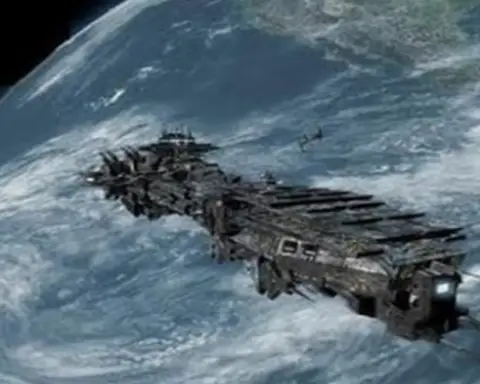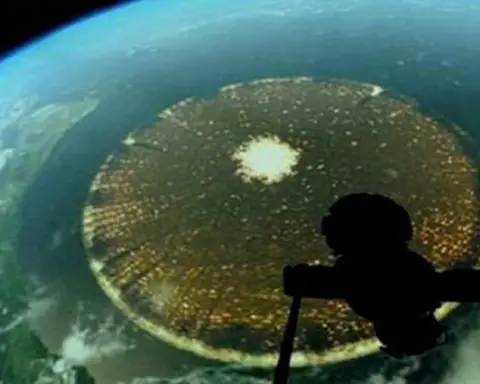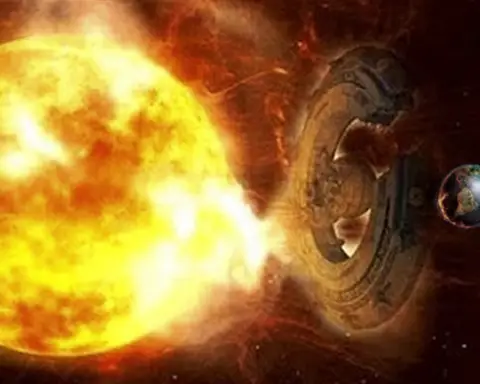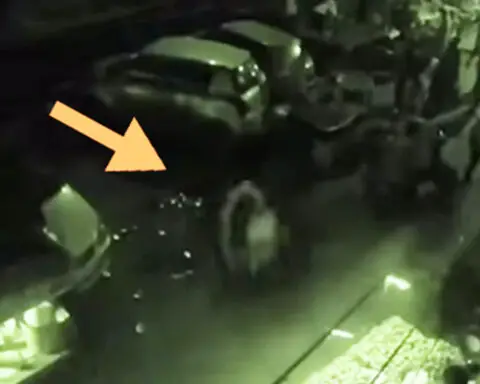In the desolate expanse of the red planet, a mystery has been slowly unraveling, one that has perplexed and captivated scientists across the globe. The recent findings from a group of international researchers have sparked a wave of intrigue and speculation in the scientific community and beyond. Their astonishing claim: Mars, now a barren landscape, was once teeming with life before being obliterated by a catastrophic and mysterious force.
The epicenter of this groundbreaking discovery lies in Gale Crater, a site that has long intrigued those looking to the stars for answers. Here, soil samples meticulously gathered and analyzed have revealed secrets that Mars has held for eons. These samples, bearing the silent testimony of the planet’s history, have led scientists to a startling conclusion: Mars was not always the arid, lifeless world we see today. For millions of years, it provided a haven for biological life, a distant mirror to our own thriving Earth.

But lurking within this revelation is a greater enigma, a puzzle that has set the scientific world abuzz with theories and conjectures. What was the unknown, apocalyptic force that swept across Mars, eradicating all forms of life? This question haunts researchers, who grapple with the implications of such a catastrophic event. Was it a colossal impact, a violent volcanic eruption, or something more sinister and unknown? The answer remains shrouded in the depths of space and time.
Adding to the intrigue is a bold theory that connects the fate of Mars with the genesis of life on Earth. Some researchers propose a cosmic journey of life, originating from Mars and finding refuge on our planet. The hypothesis is as breathtaking as it is controversial: life on Earth, they suggest, may have Martian roots.

This theory draws support from a celestial event that occurred millions of years ago, a bombardment of meteorites that pummeled Mars, scattering fragments across the solar system. Among these cosmic travelers, some are believed to have made the interplanetary voyage to Earth. The discovery of a Martian meteorite in Japan last year added fuel to this theory. Encased within this ancient rock was something extraordinary: four billion-year-old alien bacteria, a possible messenger from our planetary neighbor.

Could it be that this Martian meteorite was the ark that brought life to Earth? The possibility is tantalizing, offering a new perspective on our origins. It suggests a cosmic interconnectedness, a shared destiny among the planets of our solar system.
As scientists delve deeper into the mysteries of Mars, each discovery peels back a layer of the planet’s past, revealing more about our place in the universe. The red planet, silent and watchful, holds its secrets tightly. Yet, as we continue to explore and understand, we inch closer to unraveling the enigmatic tale of a world lost to time and the cosmic connection that binds us to our celestial neighbor.

The quest to understand Mars’s past and its catastrophic fate is more than a scientific endeavor; it’s a journey into the unknown, a pursuit of the answers that lie hidden in the cosmos. As we stand at the threshold of discoveries, the story of Mars challenges us to rethink our understanding of life, its origins, and its resilience in the face of cosmic calamities. The red planet, with its mysteries and wonders, beckons us to continue this journey, reminding us that in the vast expanse of the universe, we are all connected by the threads of cosmic history.






